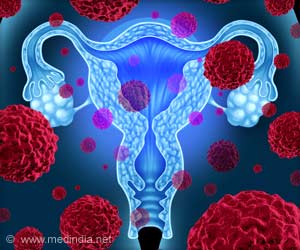HDAC inhibitors are effective in treating ovarian tumors with mutations in the ARID1A gene.

‘Repurposing FDA approved HDAC inhibitors may be a new treatment option for ovarian cancer with mutations in the ARID1A gene.’





In this study, lead researcher Rugang Zhang, Ph.D., and colleagues showed that ARID1A-mutant ovarian cancers are selectively sensitive to inhibition of another chromatin remodeling enzyme called HDAC2. This finding is consistent with the fact that high HDAC2 expression is known to be associated with poor outcome in this type of cancer. "HDAC2 and associated enzymes are well established therapeutic targets and a number of HDAC inhibitors have received FDA approval for the treatment of hematopoietic malignancies," said Zhang, deputy director of The Wistar Institute Cancer Center, and professor and co-program leader of the Gene Expression and Regulation Program. "We suggest that these inhibitors might be repurposed to target ARID1A-mutant ovarian cancers."
The Zhang Lab showed that HDAC2 inhibition suppresses proliferation and induces programmed cell death in cells with inactivated ARID1A by promoting expression of the PIK3IP1 gene. PIK3IP1 is a tumor suppressive protein that functions as an inhibitor of an important signaling axis that promotes cells proliferation and survival. Through gene knockdown approaches and genomics experiments, the researchers established that, in the absence of ARID1A, HDAC2 binds to the regulatory elements of the PIK3IP1 gene and represses its expression. As a result, the loss of PIK3IP1 allows the tumor to grow and spread while treatment with HDAC2 inhibitors restores PIK3IP1 expression and blocks tumor progression.
The team explored the use of an FDA-approved HDAC inhibitor and confirmed the therapeutic potential of this treatment in mouse models of ARID1A-inactivated ovarian cancer. According to their observations, this inhibitor slowed tumor growth and abnormal buildup of fluids in the abdomen of the tumor-bearing mice and improved survival.
"We have previously reported on the role of another chromatin remodeling factor, called EZH2, in ARID1A-mutant ovarian cancer with a similar mechanism involving antagonistic regulation of PIK3IP1 expression," said Takeshi Fukumoto, Ph.D., first author of the study and a postdoctoral researcher in the Zhang Lab. "However, it might be advantageous to inhibit EZH2 and HDAC2 simultaneously to keep at bay the development of resistance to either inhibitor alone."
Advertisement
Advertisement












